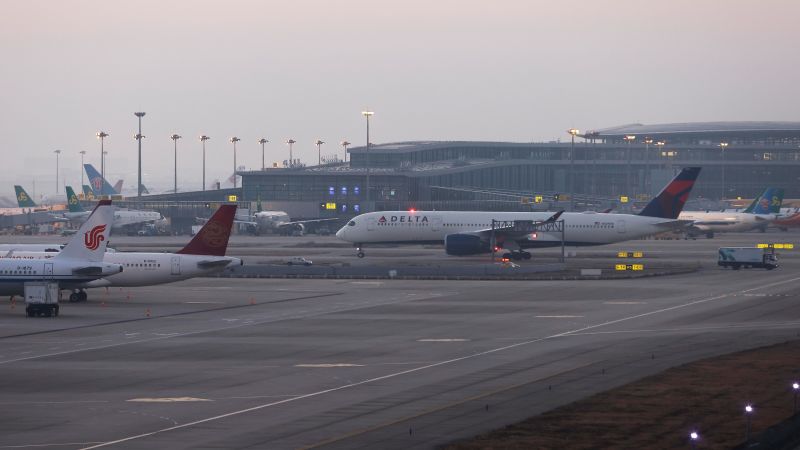The reopening of China’s borders after years of Covid restrictions initially seemed like a golden opportunity for Western airlines to return to the market. However, a year later, the mood has shifted as several Western airlines are now slashing flights due to lukewarm demand caused by China’s slumping economy. Additionally, operational costs and extended flight times related to Russia’s war on Ukraine have made Western airlines less competitive compared to Chinese rivals who benefit from a preference for Chinese-speaking crew.
Geopolitical tensions have further impacted Western airlines’ ability to fully resume flights to China and the United States, as Western tourists are looking elsewhere. According to a McKinsey partner, foreign airlines have been slower to recover international capacity to China compared to Chinese airlines. This has led to Western carriers pulling back their flight capacity as they pursue more profitable opportunities elsewhere in their networks. Delta Air Lines, for example, has postponed plans to bring back its Los Angeles-Shanghai route due to slower recovery of travel demand.
Chinese carriers have benefited from shorter routes to Europe and North America over Russia’s airspace following Chinese leader Xi Jinping’s partnership with Russia proclaimed before the invasion of Ukraine. Other countries’ airlines have been banned from Russian airspace or chosen to fly around it due to safety concerns, resulting in longer flight times and increased costs. This has led to European airlines being hit the hardest, with some airlines like Virgin Atlantic pulling out due to increased operation costs.
The aviation industry is being impacted by the strained relations between China and the Western world, with implications that cannot be ignored. The industry, which is driven by governments’ interests, is facing challenges as airlines delay plans to resume services to China while Chinese carriers are increasing their flight frequencies. Beijing’s efforts to encourage Chinese citizens to fly with domestic carriers have not done enough to lure back foreign tourists, exacerbating the situation for Western airlines.
Flights between the US and China have been affected by carefully negotiated bilateral agreements, with the US recently raising the weekly round trip quota for Chinese carriers. However, this is still significantly lower than pre-pandemic levels due to ongoing disputes between the two countries over various issues. While airlines try to strategize based on the business environment, the industry is also influenced by governments with their own interests, especially in relation to China. As the industry navigates these challenges, it is clear that the aviation sector is a critical part of the broader geopolitical landscape.


